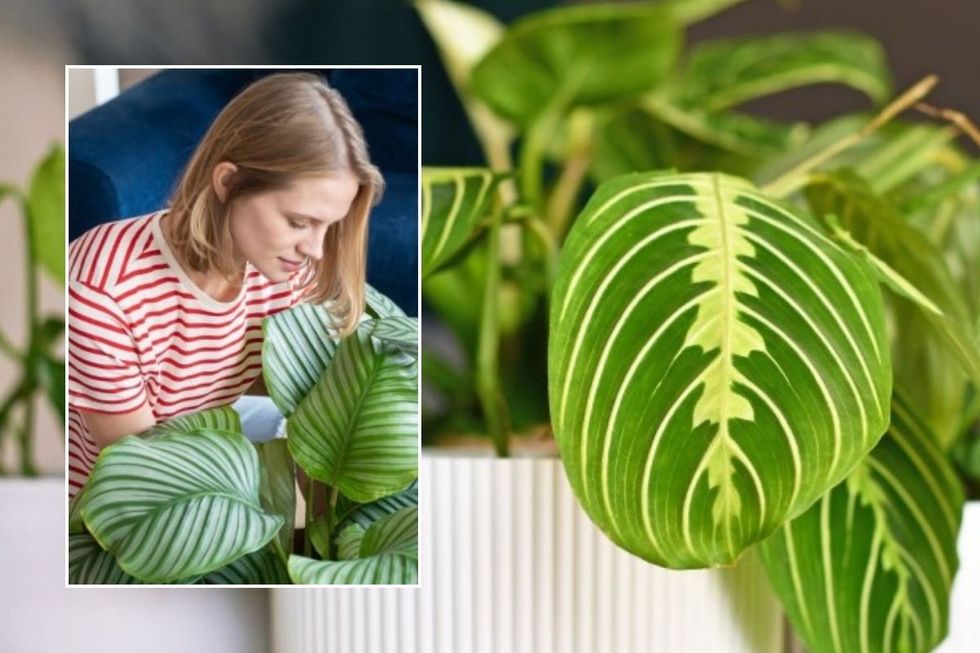'My calathea has started sprouting new growth since I switched up my watering technique'

Choosing the right water for your houseplant could be the key to thriving foliage
Don't Miss
Most Read
Latest
Calatheas are from the rainforest, where they typically thrive off little light and high levels of moisture.
They are widely loved in Western countries for the aesthetic value they add to interiors. Without the right care, however, they can rapidly wither and die.
Unfortunately, not only is it difficult to recreate the environment of a rainforest in the UK, but the water we feed our plants can be equally damaging due to contaminants.
“Even within the UK, there’s variation in water hardness and additives,” explained experts at Houseplant UK.

The hardness of water in the UK can compromise the health of houseplants
|GETTY
“Luckily, most areas have water that’s safe for people, which means it’s usually safe for most plants too.”
According to one plant enthusiast, plants like calathea respond very positively to filtered water.
Plant enthusiast Melissa, who goes by @plantsbymelissa on TikTok, explained: “I have loved calatheas for a long time and some varieties can be a lot more difficult than others but this makoyana has been a favourite of mine.
“I actually grew her from nothing so don’t toss them if the foliages dies and goes dormant. They are still growing underneath the soil and will eventually sprout new growth from the rhizomes.
“I’ve used different types of water for my calatheas and tap water has had the most dramatic response.
“My tap water is a little on the hard side and the harsh minerals can be a little tough on them, making them more crispy and not as nice looking.
“They’ll get crispy tips, it happens even in perfect conditions, but increasing humidity and not using tap water has helped mine.
“I have used mostly rainwater for her and she loves it. I have also used filtered water and distilled."
The plant aficionado claims RO water - a type of purified water - is a great option too.
“Keep in mind RO and distilled, you’ll want to make sure you’re adding nutrients to fertilise your plants and [help] them grow,” she said.
LATEST DEVELOPMENTS

Calathea plants respond well to rain water
|GETTY
Although tap water contains chlorines, calatheas will tolerate it if it's left to stand for at least 24 hours beforehand, so the chlorine evaporates.
For optimal growth, the Royal Horticultural Society recommends watering the plant moderately throughout spring and summer.
In autumn and winter, they advice allowing the surface of the soil to dry out before rewetting. The compost should not dry out completely, however.
"Careful watering is required in winter to prevent oedema," adds the RHS.










